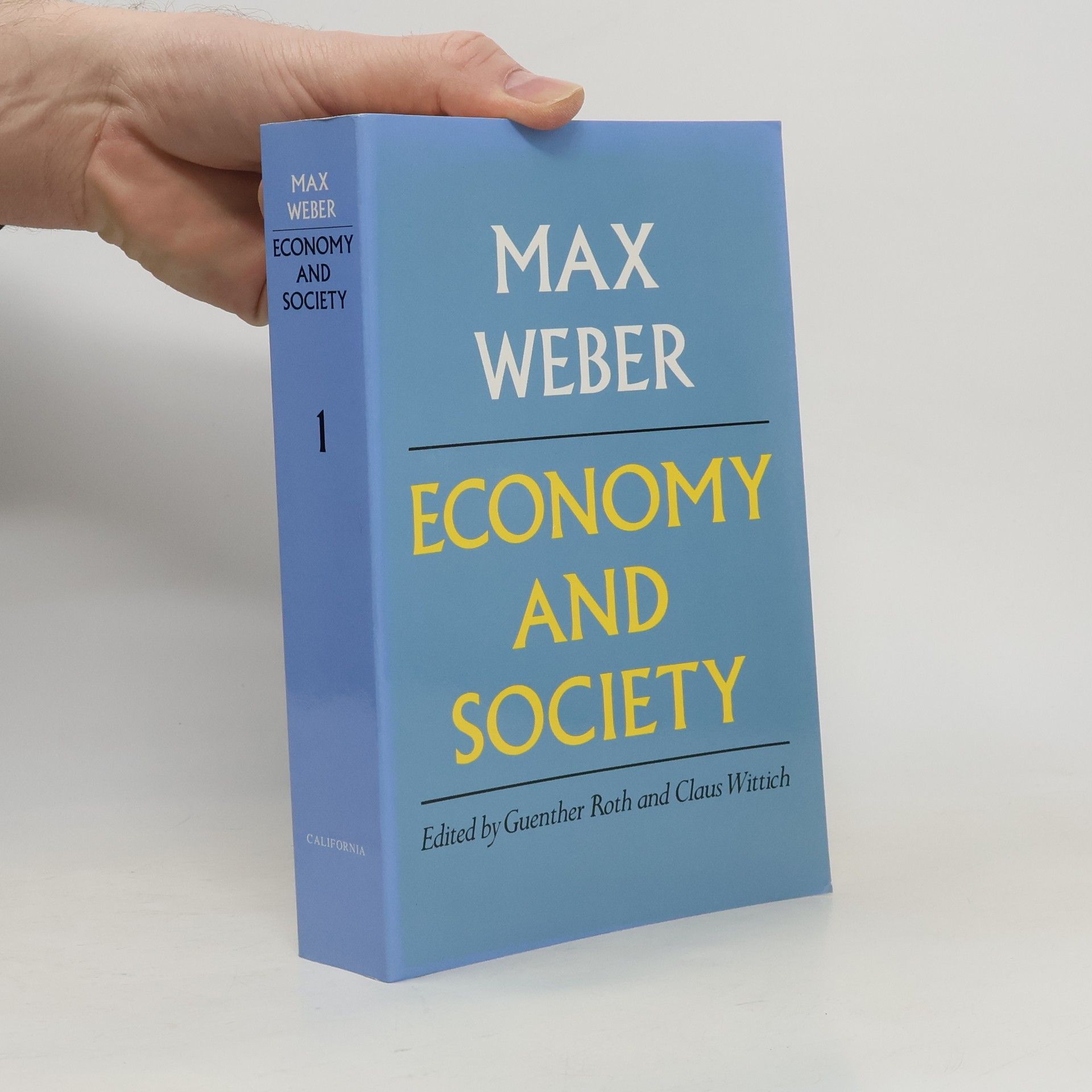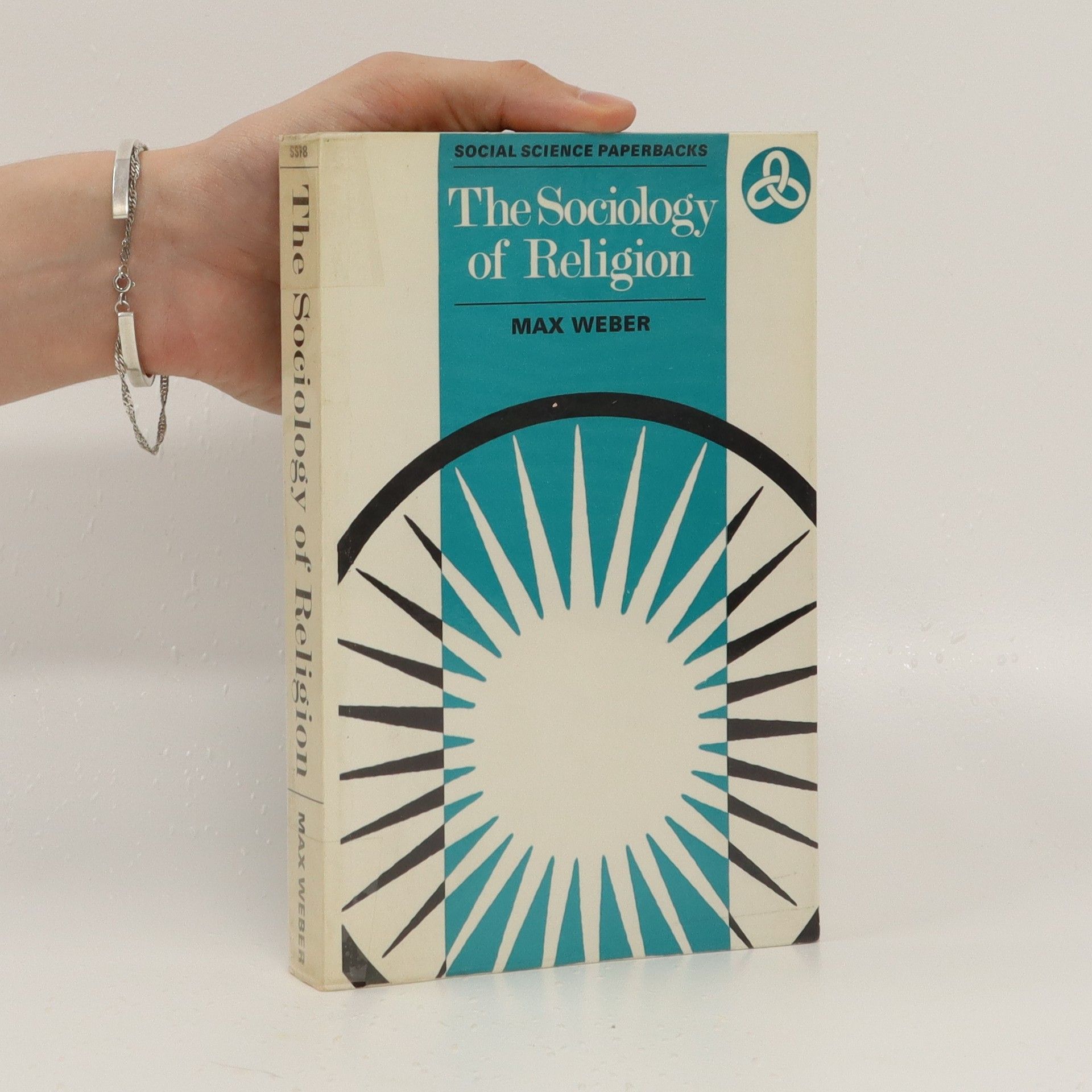In Zero-Day Rising, the third book of the BetterWorld trilogy, Kiyoko is tired of hiding and grieving, and has decided to strike back. In the first volume of the critically acclaimed BetterWorld cyberpunk trilogy, Kiyoko's older sister Waylee and their hacktivist friends exposed a conspiracy between MediaCorp and U.S. President Rand to control the flow of information and run the world on behalf of a cabal of billionaires. In volume two, Waylee faced life imprisonment, while Kiyoko and her friends were hunted by a team of ruthless mercenaries. In Zero-Day Rising, Kiyoko resolves to free her sister and bring down President Rand and MediaCorp. However, MediaCorp unleashes its ultimate plan: direct mind control with cerebral implants. Can Kiyoko and Waylee's team stop them? Can they penetrate MediaCorp's networks and end the company's grip over humanity? All while eluding the biggest manhunt in history, in a country where everyone and everything is under surveillance?
Max Weber Books
A seminal German sociologist and political economist, his work profoundly influenced social theory and the very remit of sociology. His major contributions explored the rationalization, bureaucratization, and 'disenchantment' accompanying the rise of capitalism. Weber was a central figure in establishing methodological antipositivism, framing sociology as a field that must study social action through resolutely subjective means.







General Economic History
- 328 pages
- 12 hours of reading
One of Weber's most important books and is a landmark work in the history of economic thought. This Routledge Classics edition includes a new Introduction and a translation of Weber's original 'Conceptual Preface' to the German edition, both by Keith Tribe. Also included are some corrections to the main text.
Max Weber's Economy and Society is a seminal sociological work published posthumously in the early 1920s, significantly shaping modern sociological thought. It offers an empirical comparison of social structures and normative orders across history, featuring essential chapters on social action, religion, law, bureaucracy, charisma, urban life, and political community, examining class, status, and power dynamics. Intended as an introduction for a general audience, it stands as a demanding textbook due to its precise definitions, complex typologies, and rich historical context, challenging readers at various levels—from advanced undergraduates to seasoned scholars. The first complete English edition released in 1968 was met with acclaim, with Arthur Stinchcombe affirming its importance for sociological intellectual development. Reinhard Bendix highlighted the edition's role in bridging cultural transmission to the American context, positioning it as a vital resource for historical sociology and comparative studies. Guenther Roth's extensive introduction explores the intellectual background, dominant themes, and internal logic of the work. Roth is a Sociology Professor at Columbia University, while co-editor Wittich leads an economic research group at the United Nations.
From Max Weber
- 524 pages
- 19 hours of reading
Max Weber (1864-1920) was one of the most prolific and influential sociologists of the twentieth century. This classic collection draws together his key papers. This edition contains a new preface by Professor Bryan S. Turner.
From Max Weber: Essays in Sociology
- 512 pages
- 18 hours of reading
An introduction to the work of the greatest German sociologist and a key figure in the development of present-day sociological thought.
Layout Look Book 2
- 256 pages
- 9 hours of reading
Organized so as to encourage creativity, serendipitous discovery, and inspiration, Layout Look Book 2 is an essential guide to layout design for both amateur and professional designers. The book includes techniques that can be used to enhance any layout, as well as insights into the factors that helped make each layout an effective piece. The styles covered in the volume range from traditional to cutting edge, and will enable any designer to become a more creative thinker and produce fantastic work.
Weber: Political Writings
- 424 pages
- 15 hours of reading
Max Weber (1864-1920) is generally known as a founder of modern social science. The texts in this edition span his career and illustrate the development of his political thinking on the fate of Germany and the nature of politics in the modern western state and an age of cultural 'disenchantment'.
The Protestant Ethic and the Spirit of Capitalism
- 266 pages
- 10 hours of reading
The Protestant ethic — a moral code stressing hard work, rigorous self-discipline, and the organization of one's life in the service of God — was made famous by sociologist and political economist Max Weber. In this brilliant study (his best-known and most controversial), he opposes the Marxist concept of dialectical materialism and its view that change takes place through "the struggle of opposites." Instead, he relates the rise of a capitalist economy to the Puritan determination to work out anxiety over salvation or damnation by performing good deeds — an effort that ultimately discouraged belief in predestination and encouraged capitalism. Weber's classic study has long been required reading in college and advanced high school social studies classrooms.
Debating American Modernism
Stieglitz, Duchamp, and the New York Avant-Garde
- 172 pages
- 7 hours of reading
When Duchamp moved from Paris to New York in 1915, he was disappointed by the predominantly nature-based abstraction he observed, publicly proclaiming that American artists were too dependent on outmoded European traditions and had overlooked their greatest subjects--the skyscraper and the machine. Meanwhile, the artists associated with Alfred Stieglitz and his "291" gallery remained loyal to their belief in nature as a source of ongoing renewal for visual culture, and emphasized the crucial role that intuition and spirituality played in their creation of art. The crossfire between Duchamp and Stieglitz and their respective circles defined a critical moment in early twentieth-century American art. Debating Modernism includes reproductions of work by artists from both camps, from Charles Demuth, Georgia O'Keeffe, and Paul Strand to Man Ray, Francis Picabia, and Marsden Hartley. An essay by curator Debra Bricker Balken traces the threads of the debate through the 1910s and 20s, and also addresses the appearance of sexualized imagery in nearly all of these artists' works, a phenomenon that ironically unifies the two seemingly opposed camps. Jay Bochner's essay focuses on the artists' respective violations of American expectations about art.


